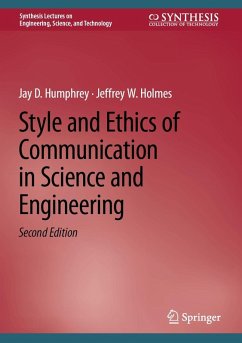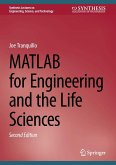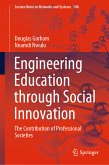In addition to presenting methods for writing clearly and concisely and improving oral presentations, this compact book provides practical guidelines for preparing theses, dissertations, journal papers for publication, and proposals for research funding. Issues of authorship, peer review, plagiarism, recordkeeping, and copyright are addressed in detail, and case studies of research misconduct are presented to highlight the need for proactive attention to scientific integrity. Ample exercises cause the reader to stop and think. The authors motivate the reader to develop an effective, individual style of communication and a personal commitment to integrity, each of which are essential to success in the workplace.
Dieser Download kann aus rechtlichen Gründen nur mit Rechnungsadresse in A, B, BG, CY, CZ, D, DK, EW, E, FIN, F, GR, HR, H, IRL, I, LT, L, LR, M, NL, PL, P, R, S, SLO, SK ausgeliefert werden.









